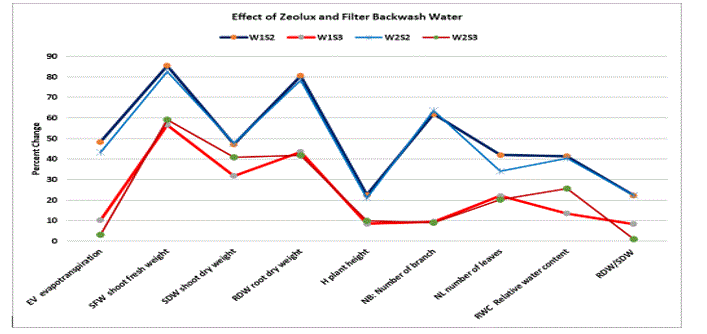
Jordan is one of the few countries with constricted water resources, having one of the lowest per capita water levels in the world (Ministry of Agriculture, 2015). Jordan's available water resources per person are predicted to fall from less than 160 m3/capita/year to roughly 90 m3/capita/year by 2025, placing the nation in the acute water shortage category. Massive volumes of filter backwash water (FBWW) are created and wasted in Jordan. The use of FBWW to Sage (Salvia Officinalis) plant germination under controlled conditions with various dilution treatments would reduce water waste while also providing an alternate irrigation water supply. The effects of Zeolux as a soil amendment on the productivity and a variety of agronomic parameters of a Sage (Salvia officinalis) irrigated with fresh and FBWW were also studied. Various clay-zeolux mixtures were tested to achieve this goal. The combination soil mix of 25% zeolux and 75% clay watered with FBWW had the greatest results in terms of plant height, number of branches, fresh weight, dry weight, and root dry weight. The results reveal that the addition of zeolux to clay enhanced the yield and agrarian characteristics of plants cultivated in the soil. The results demonstrate that employing FBWW increased plant growth features greatly, and zeolux increases the favorable impact of FBWW irrigation on plant output. The study's main results will help to preserve valuable drinking water supplies while also increasing the yield of irrigated plants by using treated FBWW for irrigation.
Total file downloads: 9